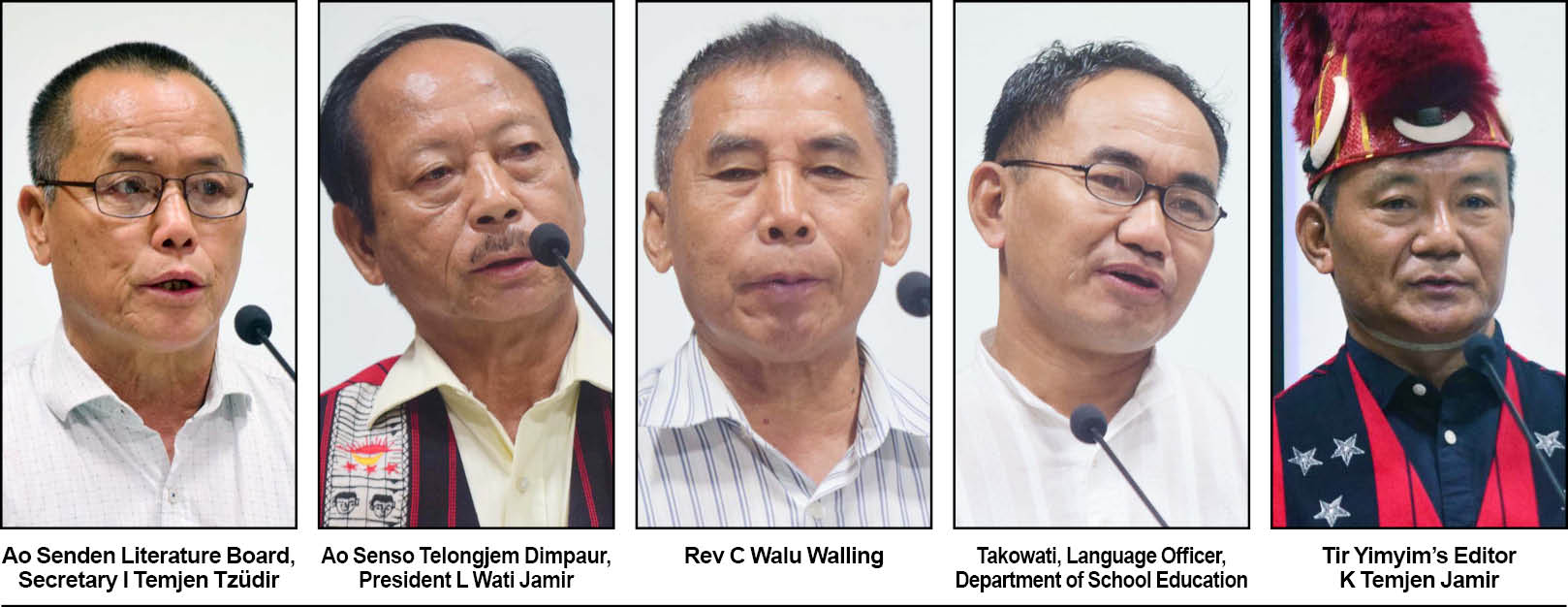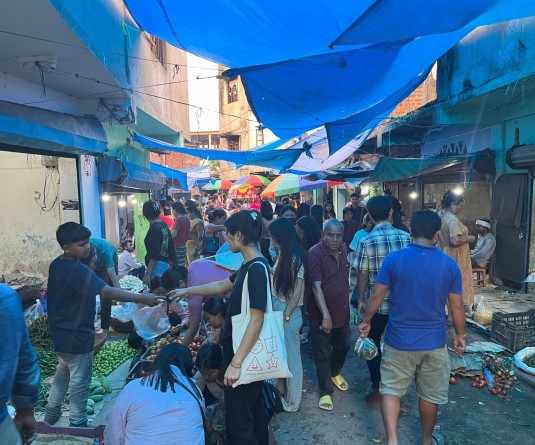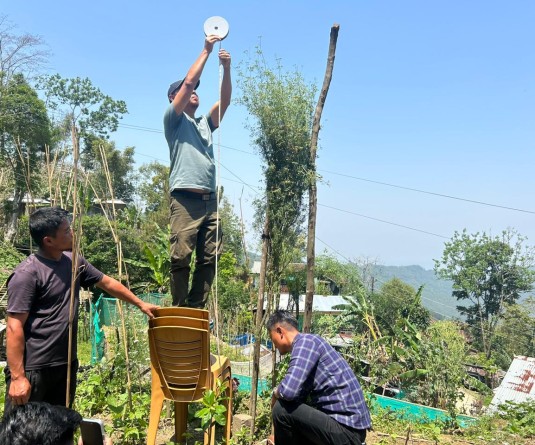World Indigenous Peoples

Tir Yimyim organises ‘International Day of World Indigenous Peoples’ event to seek way forward
Morung Express News
Dimapur | August 9
Every 2 weeks, an indigenous language disappears, placing at risk the respective cultures and knowledge systems, the United Nations noted on eve of August 9 ‘International Day of World Indigenous Peoples.’
Given this alarming reality, the importance of indigenous languages and its preservation were the central theme of an event held here today at the Dimapur Ao Baptist Church’s (DABA) Elim Hall to commemorate the day.
Organised by the leading Ao language daily, Tir Yimyim, it bought together people from different training, background and profession to reflect, assess and find ways to preserve Naga languages, particularly the Ao language.
While languages play a crucially important role in the daily lives of all people, and among others, ensure cultural diversity and identity, many languages around the world continue to disappear at an alarming rate; many of them indigenous.
With this, Tir Yimyim’s Editor K Temjen Jamir set tone for the occasion echoing the concerns shared by the United Nations Educational, Scientific and Cultural Organization (UNESCO) that nearly 7000 languages around the world are facing the risk of extinction.
More than 90% of these are spoken by less than 1 lakh people, he noted, making them more vulnerable to extinction.
Jamir also gave the instances of how the death of a woman name Marie Smith Jones in 2008, lead to Eyak language in the north-western US state of Alaska in 2008. Believed to be the last native speaker, however, she helped the University of Alaska compile an Eyak dictionary, so that future generations would have the chance to resurrect it.
“It is not too late, but it is a crucial moment for us to save and preserve our languages,” Jamir stated, urging all to come together and work towards its preservation.
Likewise, the President of Ao Senso Telongjem Dimpaur (ASTD) L Wati Jamir in his exhortation noted that if one allows native language to be forgotten or vanish, it would be a ‘big shame.’
The biggest platform to preserve the languages is the churches, he maintained, urging for doing ‘something fast’ for the revival of Ao language.
Highlighting the work done by Ao Senden Literature Board (ASLB) towards the conservation and development of the language, the ASLB Secretary I Temjen Tzüdir highlighted how the foray into writing started with the advent of Christian Missionary in 1880s.
But he regretted that for more than a century, it was neglected in academic arena. It was in 2004, that the Ao Senden, the apex body of the Ao Nagas, declared the language as a ‘collective heritage’ and formed the ASLB, which has been working towards reviving and standardising the language for common reading as well as formal academic discipline.
In 14 years, nearly 600 people have passed out of exams conducted by the board, Tzüdir informed. Besides, since 2014, a degree level in Ao is being offered at Fazl Ali College, Mokokchung, while there are plans to open such courses in Kohima and Dimapur Colleges. ‘
The Nagaland University has also accepted proposal to run Degree Honours course recently, he added.
However, noting that Aos are still behind others in terms academic imparting of languages, he called for emulating best practices of others, especially Ura Academy, a forerunner in language study among Nagas.
The Secretary also called for constructive, not destructive criticism to preserve the language as it is a collective effort.
Rev C Walu Walling, who has been working closely with the development of Ao language, made an assessment its past, present and future.
He demarcated the past as time period from advent of American Missionary to 1954, when they formally departed. It was a period of rapid progress with the publication of Ao dictionary in 1911, formation of Ao Committee in 1924 and translation of Hymns and Bible, among others.
Through such initiatives, it also changed the lives of not only Aos but others, he said.
In the present period, 1955-till date, he also noted how the language is being thought upto class 12 levels in schools as well as plan for Honours and PG course in college and University level.
For future, Rev Walu also stressed a working together to preserve the language and also regretted that Ao language is not part of present SCERT heritage study.
He also suggested for forming an academy – Jungliyimti Academy, to study, research as well as preserve the language.
In his comparative study of Ao with other languages in Nagaland, Language Officer (LO), Department of School Education, Takowati noted that right now the department is offering 18 languages till class 8 in Schools. Only Tenyidie is offered till PhD.
Citing some practical aspect of language learning, the LO pointed out the lack of classroom experiences in most languages text book, and called for contextualising translation to suit the environment on which it is being learned.
Apart from just learning, Takowati also discussed the need for Rhymes in local languages as well as knowing others cultures, in all local text books.
Moderating a group discussion later, DABA Associate Pastor, Toshi Longkumer wondered whether the Naga culture is not going beyond the villages.
The participants discussed wide range of topic but concentrated mostly on how best to impart one’s language to children and young generation, making it fun as well as educative.
Learning languages should be a lived experiences, many argued, calling for positive inputs, visual and action-based learning, storytelling and practices at home and immediate social circles.
It was also accepted that being rigid act as an impediment, and language instead should be inclusive and dynamic. Lack of women speaker while discussing ‘Mother Tongue’ was also pointed out from some corners, while digitisation for connecting especially with younger generation, was also suggested.
Abiogenesis and Anungba Sanglir also presented songs during the event.




